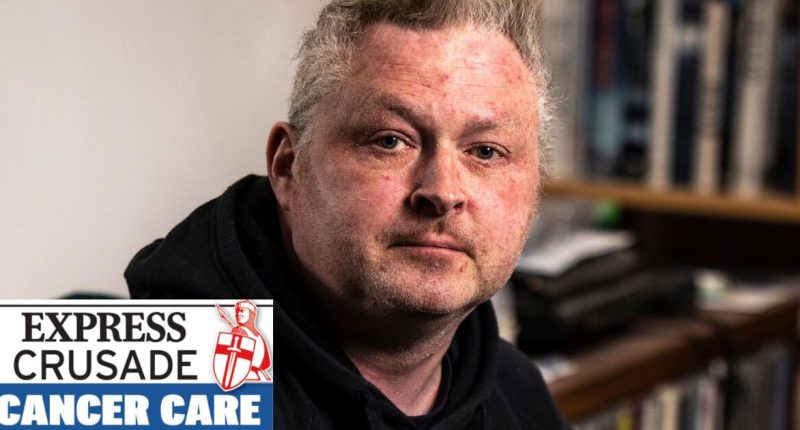Share this @internewscast.com
Turning up my music really loud was the closest I got to a teenage rebellion when my parents said I couldn’t go to see my favourite band play. And even then I think I probably only had it blasting out for seven or eight minutes. Their reasons were that I was too young, and not streetwise enough to survive on the mean streets of London, coming as I did from a village with a witches’ coven, a couple of pubs and some nudist colonies.
I tried to explain that it was Veruca Salt on the NME Brats tour and it was going to be absolutely incredible. Asking them both individually didn’t work because they both had the same answer and the same reasons why January 1995 wasn’t going to be the month for my first gig. That experience wasn’t something I’d thought about for decades until this week when a battle with the NHS about part of my chemotherapy treatment left me pulling my thinning hair out.
I wished that the nurses I spoke to would have a similar easy to understand policy like my parents did 30 years ago. And it has left me feeling worried about the state of the NHS where it seems there are gaps in knowledge or understanding of the procedures that the staff are supposed to follow.
To fill in a bit more of the detail: The final bit of my chemotherapy treatment each fortnight is when I am fitted with a “chemo pump” which slowly puts a drug called fluorouracil into my body. By slowly I mean very slowly. Over 46 hours five grammes of the drug drips into my body. The 46 hours isn’t guess work.
Someone who did far better at school than I did calculated that it was the best infusion time for the drug, which works by preventing cells from producing DNA, killing fast-growing cells to treat various cancers.
But the pump works by a heat sensor which picks up on a patient’s body temperature and so, because I’m obviously cooler than Snoop Dogg, the pump is never empty when I return to the hospital to have it removed.
This isn’t an issue when I have chemotherapy on a Wednesday because the pump is removed at the day unit on a Friday. When it isn’t empty the pharmacist and my medical team is consulted, it is weighed and photographed and then disposed of.
But this week a problem meant that it wasn’t emptying at all overnight on Wednesday so I had to return on Thursday for it to be checked and was booked in for a pump removal on the Saturday.
Sadly for me and my weekend plans the Saturday nurses on the wards follow a different procedure than the ones on the day unit. I turned up on Saturday and was told to sit around for a few hours because the pump wasn’t finished enough to be removed.
Then I was sent home and told to come back on the Sunday. I returned on the Sunday only to be told to sit around and wait for a few hours before I was sent home.
I was told to go to the day unit on the Monday but when that day came round I was feeling too sick to make the journey. Instead I went on Tuesday, almost six days after my pump had initially been put on.
Questions are being asked about what happened and I’ve been asked to check with my medical team about what the procedure should be. I’m also going to ask the clinical director for her to make a ruling so all the nurses know exactly what to do with someone in my situation.
I’m also left wondering about the stress and mental health impacts of such a thing happening to a cancer patient. How does someone cope emotionally if they have been looking forward to a weekend with their grandchildren or even just a walk in the park with friends but have to keep going back to hospital instead?
How does it affect a patient when the nurses who are supposed to keep you safe don’t seem to be following the 46-hour rule, which you have been told exists for reasons including reducing the risk of infection?
This kind of stress isn’t ideal for anyone, let alone a cancer patient, and it needs to be recognised by medical teams. By following their unclear seemingly made up rules they can be doing more harm than good.
The Daily Express’s Cancer Care campaign is working to fight this and to ensure that, whether it is stress about treatment or something completely different, all patients get the mental health support they need.













